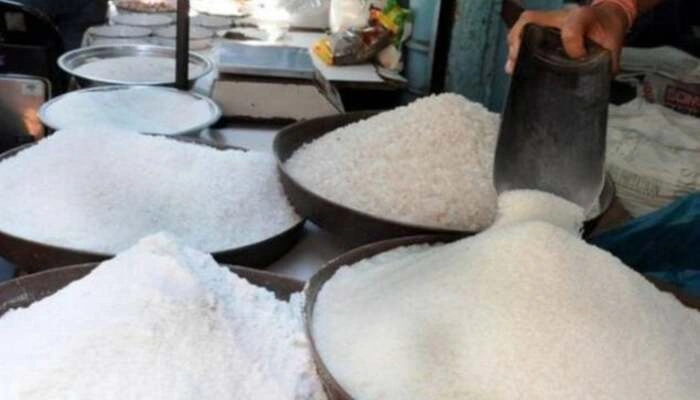ISLAMABAD: The Public Accounts Committee (PAC) has launched a strong inquiry into Pakistan’s ongoing sweetener crisis, questioning the Federal Board of Revenue (FBR) and the Ministry of Industries over recent tax exemptions and export incentives.
Chairman Junaid Akbar Khan led Tuesday’s session, pressing FBR officials to disclose the names of mill owners who benefited from government relief measures.
A key focus of the discussion was a controversial SRO issued by the FBR that waived duties on imports and facilitated exports. MNA Sanaullah Mastikhel questioned whose interests the order protected and demanded accountability.
The FBR, however, failed to provide names despite earlier instructions. Akbar reminded them that a formal request had already been made and could not be ignored. The committee reiterated its directive for a full list of beneficiaries linked to the export and subsidy policies.
Read more: Rajab Butt Faces Backlash Over Leaked Private Videos Scandal
Read more: Barcelona Eye Gabriel Jesus as Lewandowski Successor
Read more: Gaza Aid Just a ‘Drop in the Ocean’ Amid Growing Humanitarian Crisis
Rising Prices Amid Export Boom Raise Alarms
Officials from the Ministry of Industries informed the committee that approximately 790,000 metric tonnes of the sweetener had been cleared for export in three phases. This generated over $400 million in foreign exchange earnings, based on what the ministry described as a national surplus of 1.3 million tonnes.
Critics were not convinced. Lawmakers pointed out that while exports were approved, local market prices rose significantly—from Rs143 to Rs173 per kilogram. MNA Riaz Fatyana said the public had been defrauded of Rs287 billion due to manipulated market values and lack of oversight. He cited conflicting government claims, where availability was declared as surplus one moment and short the next.
The Ministry explained that crop and production estimates are shared by provincial governments. It also noted that stock management decisions are made through the Sugar Advisory Board, which includes government officials and industry representatives. However, committee members raised concerns about whether these decisions genuinely reflect public interest.
A committee led by Deputy Prime Minister Ishaq Dar has now been formed to investigate the spike in domestic prices.
Read more: MSF Slams Gaza Airdrops as ‘Futile’ and ‘Cynical’ Amid Ongoing Crisis
Read more: India Revives Fake Encounter Tactics Under Operation Mahadev
Read more: Karakoram Highway Reopens as GB Battles Worsening Floods
Lawmakers Warn Against Industry Influence in Policy
The session turned critical when MNA Moeen Aamir Pirzada accused influential mill owners of maintaining deep ties with successive governments. He claimed these connections enabled them to shape policy and bypass accountability mechanisms.
Khawaja Shiraz also demanded transparency, asking for the names of those granted export licenses. The repeated calls for disclosure emphasized growing concerns over private interests shaping public policy.
PAC members also criticized the Ministry’s reliance on industry stakeholders for advisory decisions. They argued that this setup leaves regulatory agencies vulnerable to bias. Mastikhel added that even a one-rupee increase in market price could lead to windfall profits for producers, warning that the industry must reform or face nationalization.
The meeting ended with a firm directive for the FBR to submit names of all mill owners and directors who gained from recent policy decisions.
With price hikes hurting households across the country, the PAC’s probe has put key institutions on notice. The coming weeks will test whether the government takes meaningful action to restore public confidence—or allows vested interests to dictate policy once again.
Read more: Gold Price Plunges by Rs. 8,500 Per Tola in Three Days
Read more: BISE Peshawar Matric Exam 2025 Toppers List
Follow us on Instagram, YouTube, Facebook,, X and TikTok for latest updates
